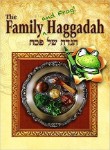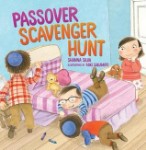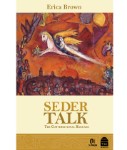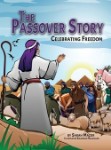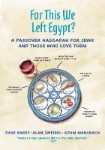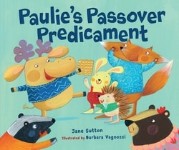Honor, History, Holocaust; Thoughts on “Zaidy’s War” by Martin Bodek

Buy this book at Amazon or for Kindle or at Bookshop
The book’s subtitle: Four Armies, Three Continents, Two Brothers. One Man’s Impossible Story of Endurance
I have never read an entire book written in the present tense before, so first it was slightly disorienting to follow “Zaidy’s War” by Martin Bodek. It has forced me to self-reflect more than usual as I was progressing with the narrative. My primary feeling was that it was an ongoing story, it is still happening. As if the events would be happening in real time, in our current (or any) era. The secondary effect for me: it made the story more personal. As if it would/could happen to me personally or any of us. From an educational perspective, these results were pure genius, whether they were planned or not. A challenge in Holocaust education, now that the survivors’ numbers are dwindling due to age, is how to describe what happened to the current and future generations in a way that they would actually read/watch/listen to it then understand it and act based on the internalized knowledge. The first half of this book–written in an authentic voice, with honor and recounting the events without any sentimental or unnecessary fillers– can serve this purpose magnificently. If for nothing else I am grateful to the author and his grandfather. But there is more.
The explicit purpose of the book is to follow the words of Exodus 13:8 which commands us to tell our children what G-d did for us. Or, as the author tells to the protagonist of this biography, his grandfather, Benzion Malik on page 114: “I should know, your grandchildren should know, and your great-grandchildren should know, and my future children should know who their Zaidy is, from where he comes, what he did with his life, what kind of man he was.” There is a rare triple honor in play here. First of all the hero of the book is an extremely honorable man. What he endured in the six years of World War II, including being drafted into Romanian and Hungarian armies, being seized for forced labor in the German and Soviet armies, walking thousands of miles home, and surviving in a series of unlikely situations is extraordinary in itself and a testament to his skills and spirit. And throughout his ordeal, he kept his honor and he never crossed moral red lines .
The second honor must have been author’s who not only had a living relationship with his grandfather but also who had the opportunity, time, patience, and literary skills to turn into a book for Zaidy’s descendants and for all. This leads me to the third honor: I, as a reader felt honored to learn about such an extraordinary person. I felt privileged to get to know both of them. I am grateful for the experience and you will be too when you read the book.
I cannot help the dual feeling though that on one hand reading this life story is like reading a typical story to which many similar ones may exist that were never shared. At the same time, I am painfully aware that the main reason similar yet different stories were not shared is that the people who could did not survive. The tremendous human loss of the Holocaust particularly and personally weighed me down when I read this sentence on page 49: “In total, 119 members of the close-knit, interconnected Malik, Gantz, and Fried families from Marmarosh are deported to Auschwitz, and more than 100 do not survive the day.” I don’t have a number or list like this, although I know that plenty of my family were killed too under similar circumstances.
I noticed a cultural difference between the author’s background and mine. Bloodlines are much more important to his community than the one I grew up in. It was fascinating reading the genealogies. In the extensive appendix, the author could and did trace back his family to prominent rabbis, including to Baal Shem Tov, Nachman of Breslov, Tosefet Yom-Tov, and the Maharal and a note that they are even descendants to King David himself. In the main text of the book special attention is paid to family relations, e.g. when children were born and whether they passed away in childhood or not. I believe this attention to keeping such a close track of family members is more typical to orthodox, more closed communities than to my, more assimilated family background. That is not to say, that for my grandparents their family was less important. But they chose not to speak about their perished beloved after the Holocaust, while the author’s family honored their memories by remembering them more actively. Now, I wish that I had heard more stories from my grandparents about their (and by extension my) family. I am inspired though to record at least some of the stories from my parents for the sake of my children.
Zaidy’s War is a story of hope, resilience, and the power of the human spirit. It is a reminder that even in the darkest of times, there is always hope for a better future. The book is also a valuable historical document. It provides a firsthand account of the Holocaust, and it helps us to understand the experiences of those who lived through it. I highly recommend Zaidy’s War. It is a powerful and moving story that will stay with you long after you finish reading it. It is also inspirational. When Theodore Roosevelt said, “Comparison is the thief of joy.” he must have thought of people comparing themselves to others who are luckier, more accomplished, or assumed superior to us in one way or another. (Similarly to Mark Twain who said that “Comparison is the death of joy.”) However, reading this life story and comparing myself to the hero I feel inspired to strive for a similar level of resilience, kindness, and honor. When/if I compare my own challenges, problems, and life to his I realize, again, how fortunate I am and my gratitude for this motivates me to become more honorable. This is the highest praise I can think of giving to the book and its author. I believe it helps make the world a better place by sharing the story and by honoring the humble and great man.
Martin Bodek’s blog, Instagram, Facebook and X/Twitter page
Disclaimer: I have received a digital copy of this book and a small amount from the author which did not affect my review in any way.
Year first published: 2022
The book's page at the publisher's site

